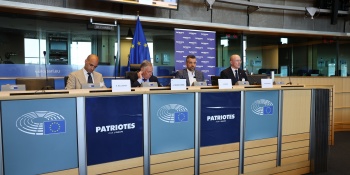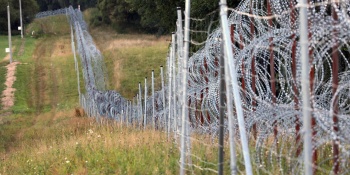Published: 23.05.2025

We are currently engaging with think tanks and political parties across the continent to collaboratively develop a detailed counter-proposal to the centralist, anti-national, and anti-democratic vision of the European Union promoted by the European Parliament and President Macron.
In September last year, in collaboration with the Heritage Foundation, the Ordo Iuris Institute organized a conference in Warsaw, bringing together think tanks from across Europe to discuss the potential impact on transatlantic relations of the deep treaty reform proposed by the European Parliament, strongly supported by Germany and France. The need for an alternative EU reform project was also highlighted.
This has resulted in an initial report prepared by Poland’s Ordo Iuris Institute and Hungary’s Mathias Corvinus Collegium. This report outlines two possible scenarios for an alternative reform of the EU treaties, aiming to restore democracy and national sovereignty to the center of EU cooperation and make Europe great again.
“The Great Reset – Restoring Member State Sovereignty in the European Union” is now available for download in five European languages:
Over the past 70 years, the European Union has evolved from a simple economic cooperation project into a powerful supranational entity with its own currency, court, and ability to impose financial sanctions on Member States. What began as a vision of free trade and peaceful coexistence has transformed into an institution influencing nearly all aspects of governance in Europe, centralizing power at the expense of national sovereignty.
Today, the EU faces an existential crisis. Some advocate for deeper integration, accelerating the trend toward federalization. However, decades of increased centralization have not resolved Europe's challenges but have instead exacerbated them. The solution lies in returning to the EU's founding principles.

Wednesday's presentation in Brussels of the European Union reform plan developed by Poland’s Ordo Iuris Institute and Hungary’s Mathias Corvinus Collegium garnered significant interest. Nearly a hundred MEPs and their staff from many countries came to the presentation of this proposal.

10.06.2025
According to the authors of the report published today, titled “Violations of the Principles of a Democratic State of Law and the Rule of Law by the Government Donald Tusk after December 13, 2023,” the authorities, under the leadership of Polish PM Donal

09.06.2025
Presidential elections, which have just taken place in Poland, were won by the candidate supported by the opposition. According to the law, the validity of the elections should be decided by the Extraordinary Review and Public Affairs Chamber of the Supreme Court. However, the government is questioning the competence of this chamber, which could be interpreted as an attempt to obstruct the transfer of power to the newly elected president.

• The pressure on the European Union’s southern borders has continued unabated since the great migration crisis of 2015.